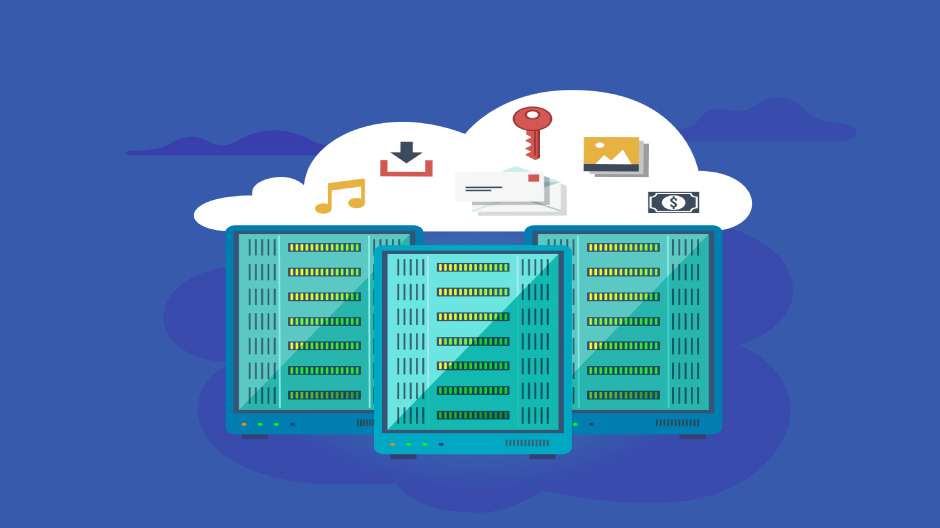Choosing the right hosting plan is critical when building a secure and reliable website. Whether you’re launching a small blog, an eCommerce store, or a business platform, understanding the different hosting options—Shared, VPS, and Dedicated hosting—can help you select the best solution that fits your budget and performance needs.

In this guide, we’ll break down these three main types of web hosting and help you determine which one aligns with your online goals. We’ll also explore how managed hosting, security, and cost affect your decision and why more businesses are switching to best managed VPS hosting for flexibility and performance.
- What is Shared Hosting?
Shared hosting is the most basic and budget-friendly type of web hosting available today. In this setup, your website resides on a single server that also hosts multiple other websites. All server resources—such as RAM, CPU, disk space, and bandwidth—are shared among all users on that server. This model allows cheap web hosting providers to keep prices low, making it a popular choice for beginners and small websites.
Pros of shared hosting include its affordability, ease of use, and lack of required technical expertise. It’s perfect for personal blogs, small portfolios, or basic business sites that don’t expect high traffic volumes.
Cons include limited resources, slower performance during peak usage periods, and reduced security due to the shared environment. Any issues or vulnerabilities affecting one site could potentially impact others on the same server.
Use Case:
Shared hosting is ideal for individuals or startups looking to build a basic online presence without investing heavily. If you’re on a tight budget and just starting out, this cheap and beginner-friendly hosting option can help you get online quickly. However, as your traffic grows or your site becomes more complex, you may quickly outgrow the limitations of shared hosting and need to upgrade to a more secure and scalable solution like VPS.
- What is VPS Hosting?
VPS (Virtual Private Server) hosting bridges the gap between shared hosting and dedicated servers. Using powerful virtualization technology, a single physical server is divided into multiple virtual servers, each with its own dedicated resources like CPU, RAM, and storage. This gives users a greater degree of control, performance, and reliability, even though the physical machine is shared.
Unlike shared hosting, where resources are split and performance can fluctuate, VPS hosting ensures consistent and isolated performance, making it an excellent choice for growing websites, online stores, and business applications. You can customize your server environment to meet the unique demands of your website or app without interference from other users.
Key Benefits of VPS Hosting include:
- Dedicated Resources: Your own slice of CPU, memory, and storage ensures consistent speed and reliability.
- Root Access: Full administrative control lets you install custom software, configure the server, and optimize settings to your liking.
- Improved Security: The isolated environment reduces the risk of being affected by other users’ vulnerabilities.
- Scalable Performance: Easily upgrade your plan as your traffic or resource needs grow.
You can choose between unmanaged VPS, where you’re responsible for server setup and maintenance, and managed VPS, where the web hosting provider handles everything—perfect for those who want the benefits of VPS without the complexity.
If you’re looking for the best managed VPS hosting, many hosting providers offer premium features like automatic software updates, daily backups, proactive server monitoring, malware protection, and 24/7 technical support—all designed to save time and ensure peace of mind for businesses and developers alike.
Why Managed VPS Hosting is Popular?
For small to mid-sized businesses, managed VPS hosting offers a perfect balance between performance, control, and convenience. It’s especially attractive to startups, agencies, and developers who want reliable infrastructure without dealing with server administration tasks.
With managed VPS, the hosting provider takes care of:
- Server Security: Firewall configurations, threat detection, and DDoS protection.
- Software Installations and Updates: Keeping your applications and operating system up to date.
- Performance Optimization: Ensuring your server runs smoothly with caching, tuning, and load balancing.
- 24/7 Expert Support: Help is always available if anything goes wrong.
This frees up time and resources, allowing business owners and developers to focus on building products, serving clients, and growing their brand, instead of worrying about technical maintenance. That’s why more professionals are turning to low cost, managed VPS hosting solutions as a future-proof investment for their online presence.
- What is Dedicated Hosting?
Dedicated hosting gives you an entire physical server just for your website. There’s no sharing of resources, which means maximum performance, customization, and security.
Pros:
- Full control of server environment
- Highest level of security
- Optimal performance and uptime
- Great for high-traffic websites
Cons:
- Expensive
- Requires technical knowledge or a dedicated IT team
Use Case:
Large corporations, enterprise-level eCommerce stores, or applications with high traffic and sensitive data benefit most from dedicated hosting.
- Cost Breakdown: Which is the Most Affordable?
If you’re budget-conscious, start with shared hosting or upgrade to a low-cost VPS hosting plan. Today, many hosting providers offer cheap VPS plans with full management, starting as low as possible.
However, it’s important to consider the value rather than just the price.
- Shared hosting may seem cheap but could cost you in terms of speed, downtime, and limited growth.
- Managed VPS hosting gives you a secure and performance-optimized platform for a reasonable price.
- Dedicated servers, while powerful, are best if you absolutely need them.
- Security Considerations
Website security is a top concern, especially in 2025 where cyber threats are more sophisticated. Here’s how each hosting type handles security:
- Shared hosting: Vulnerable due to multiple sites on one server. If one site is compromised, others may be affected.
- VPS hosting: Offers isolated environments, making it much more secure. Managed VPS hosting includes firewall setups, malware scans, and regular backups.
- Dedicated hosting: Offers the highest level of security. You control all settings, and no one else shares your server.
If security is a priority but you don’t have an IT team, best managed VPS hosting is your safest bet.
- Performance and Speed
Website performance affects SEO, user experience, and conversions.
- Shared hosting can slow down during traffic spikes.
- VPS hosting provides consistent speed and allows you to scale resources as needed.
- Dedicated servers deliver the fastest performance, but at a higher cost.
For most growing businesses, a managed VPS offers a strong mix of performance and affordability.
- Scalability: Grow Without Headaches
As your website or application attracts more traffic, your hosting needs will inevitably grow. Scalability becomes a critical factor in ensuring smooth performance and uninterrupted service. Shared hosting offers very limited scalability—once you hit the resource cap, you’ll need to migrate to a more powerful solution. In contrast, VPS hosting, especially cloud-based VPS, allows for quick and seamless upgrades of CPU, RAM, and disk space without affecting your site’s availability.
This makes VPS an ideal option for fast-growing websites, online stores, and SaaS platforms, where sudden traffic surges or increased functionality demand more computing power. While dedicated servers also offer scalability, expanding resources typically involves hardware upgrades, which can be time-consuming and costly.
With cloud-based best managed VPS hosting, scaling up your server environment is fast, affordable, and typically involves no downtime. This flexibility enables businesses to grow at their own pace, without worrying about performance bottlenecks or service interruptions—giving you a future-ready hosting solution that adjusts as you grow.
9. Control and Customization
For developers, agencies, and power users, having full control over the server environment is essential. Whether it’s installing specific software, configuring custom stacks, or optimizing server performance, the ability to make backend changes is crucial. Unfortunately, shared hosting offers minimal control—users are restricted to what the cheap web hosting providers allows, with no root access or server-level customization. VPS hosting, on the other hand, provides root access and extensive configuration options, allowing users to tailor the environment to their exact needs. While dedicated hosting offers the highest level of control, it often comes at a much higher cost and requires significant technical expertise.
This is where managed VPS hosting shines. It strikes the perfect balance by giving you root access while also including professional support to handle server updates, security patches, and routine maintenance. For tech startups, web developers, and digital agencies, this combination of control and convenience makes managed VPS hosting an ideal solution—offering the power of customization without the operational headaches.
10. SEO, Uptime & User Experience
Your hosting choice doesn’t just affect performance—it also plays a direct role in your search engine rankings and user satisfaction. Google rewards websites that load quickly, are secure, and experience minimal downtime. That’s why web hosting should be considered part of your SEO strategy. Faster websites not only rank better but also provide a superior user experience, reducing bounce rates and increasing conversions. Shared hosting often fails to deliver on speed and uptime, especially during peak usage.
By choosing the best managed VPS hosting provider like M2Host, you gain access to advanced features like SSD storage, CDN integration, automatic backups, and 99.9% uptime guarantees. Additionally, hosting your website on servers located nearby, significantly boosts loading speeds for visitors. Google also favors secure sites, so having SSL certificates and strong security protocols in place—often included in cheap and secure managed VPS plans—can give your rankings an extra edge. Altogether, these benefits combine to support both your SEO goals and your audience’s online experience.
11. When to Upgrade Your Hosting?
At some point, your website may begin to outgrow its current cheap web hosting plan. Recognizing the signs early can help you avoid performance issues and lost business. If your site frequently slows down, crashes during traffic spikes, or hits bandwidth and storage limits, it’s time to consider an upgrade. Similarly, if you need more advanced features—such as support for custom apps, better backups, or stronger security protocols—a more robust hosting environment is essential.
For most website owners, the logical next step from shared hosting is a low-cost VPS hosting solution that includes management. This type of upgrade delivers increased resources, greater security, and the flexibility to run complex applications without the cost of a dedicated server. Best of all, with managed VPS hosting, you don’t need to be a system admin to reap the benefits—your hosting provider takes care of server optimization, updates, and security while you focus on growth.
- Best Managed VPS Hosting Providers-
If you’re considering best managed VPS hosting, here are popular cheap web hosting providers known for performance and affordability:
- Plans from $1/month
- SSD storage, LiteSpeed servers
- Full root access + managed option
- InMotion Hosting
- Free cPanel, managed VPS support
- Secure environment with automatic backups
- A2 Hosting
- Free site migration
- Full management included
- Scala Hosting
- SPanel (cPanel alternative)
- Scalable and low-cost VPS options
All of these offer cheap, secure, and fully managed VPS hosting—ideal for businesses, developers, and agencies targeting the market.
Final Thoughts-
Choosing the right and cheap web hosting plan—Shared, VPS, or Dedicated—depends on your budget, traffic needs, and level of technical control required.
- Shared hosting is a good entry point but comes with limitations.
- VPS hosting (especially best managed VPS hosting) offers performance, scalability, and security at a low-cost.
- Dedicated hosting provides unmatched control and power, but it’s best for enterprise-level operations.
If you’re a business or developer looking for cheap yet secure hosting that grows with you, a managed VPS hosting plan is likely your best bet.
Ready to upgrade your website’s speed, security, and scalability? Explore the top-rated low-cost managed VPS hosting providers and elevate your online presence today.



